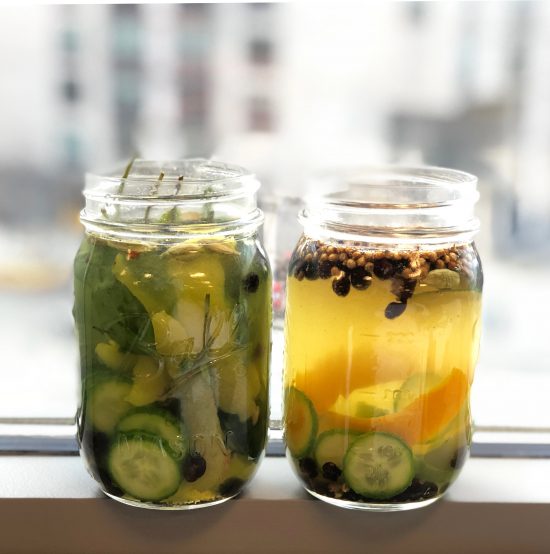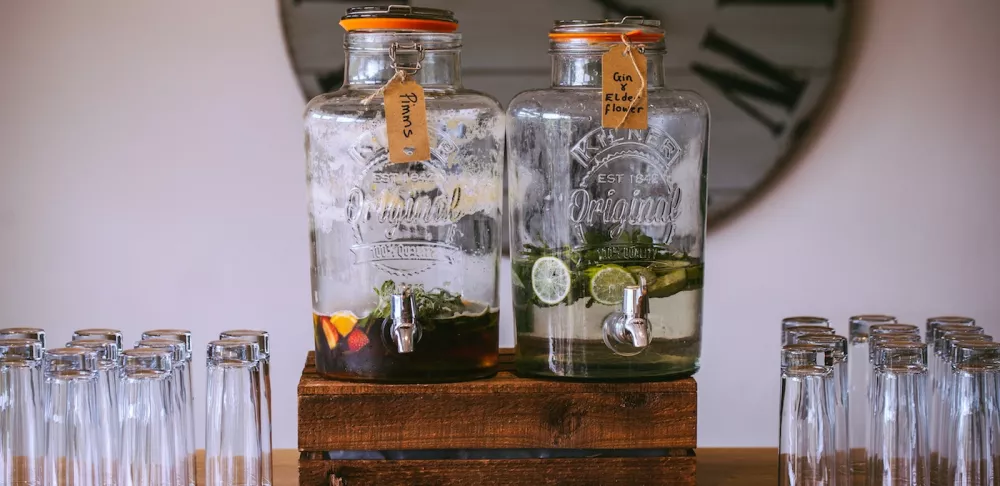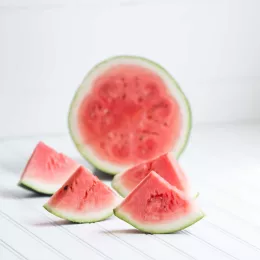The Sonicprep Ultrasonic Emulisifer by PolyScience is a piece of equipment that has fascinated me for a few years, but I never had the opportunity to use one. Until now. The Sonicprep is the latest addition to the Culinary Technology Lab here at ICE. The lab’s equipment spans from when man just learned to harness fire (our hearth oven, tandoor and rotisserie) to the most cutting edge cooking appliances in the world (sous vide and precision temperature induction).
This latest addition may look more suited to a research lab than a kitchen, but its ability to help ICE chefs and students innovate with food (and flavor experimentation) is exactly why it belongs right where it is.  At this point, you may be wondering:
At this point, you may be wondering:
What the heck is it?
Good question. PolyScience tells us that the “Sonicprep emits ultrasonic sound waves or ‘sonicates’ to extract, infuse, homogenize, emulsify, suspend, de-gas or even rapidly create barrel-aged flavor. By applying low heat vibrations of sound energy, this new PolyScience machine provides you an incredible range of techniques.” (Emphasis added.)
In other words, the Sonicprep is the key to creating, extracting, infusing and developing both flavor and texture in the fastest, most efficient and unique manner ever seen in a kitchen. Sonic waves force interactions between ingredients without the shearing, chopping or breaking that would be caused by a blender, so extracting or infusing flavors can become incredibly precise.
From something as simple as a new stove to an innovative, modern tool like the Sonicprep, there is always a learning curve when working with a new piece of equipment. When testing out a new stove, I always prepare something familiar, like a fried egg, to get my bearings. So for my first run with the Sonicprep, I also chose something I know well… alcohol. I have long been a fan of infusing alcohol to create unique flavor combinations.
For the past few years, in my sous vide courses, I’ve taught students how combining vodka + spices + heat + time = custom-flavored gin. While testing out the Sonicprep, I realized that there was the ability to create these same infusions without the high temperatures used in sous vide, meaning fresh items like herbs and citrus zest could retain their maximum aromas.
For our maiden voyage with the Sonicprep, I decided to transform vodka into gin. I loaded up a jar with vodka, crushed juniper berries, cardamom, coriander, black pepper, fresh cucumber and citrus zest. I set up a second infusion with some of the same spices, but also ventured to ICE’s hydroponic garden to harvest basil flowers to add herbaceous and floral aromas to the mix. The machine was set to run a cycle of just three minutes of constant sonic pulses.  The speed and quality of the result was like nothing I had ever seen before with any other technique. The aroma of the herbs and spices in the jar became bright and full.
The speed and quality of the result was like nothing I had ever seen before with any other technique. The aroma of the herbs and spices in the jar became bright and full.
Since it was a Friday afternoon, a few taste testers and I were able to sample both batches. The first jar yielded a product quite similar to gin, but more accurately described as gin-flavored vodka, meaning the transformation wasn’t quite complete. The second batch with the garden’s basil had an intense flavor, which wasn’t as reminiscent of gin but was delicious nonetheless. I’d say the latter is a strong front-runner to become my summer drink of choice, topped with sparkling water and a squeeze of fresh lime juice.
Though it was fun to experiment with the boozy potential of the Sonicprep, it’s so much more than a tool to use to up your mixology game. Now that we are more familiar with the machine and its variety of uses, new projects and goals are starting to take shape. One that is especially intriguing to me is emulsion and homogenization.
I hope we can manipulate fats and liquids into formulations to mimic common kitchen products — specifically butter and whipping cream. Imagine the possibilities if you could create your whipping cream from, say, rendered bacon fat or dashi, or make a butter substitute from olive oil or soy milk. Check back on the blog and follow ICE on social media to keep up with the latest developments from the Culinary Technology Lab!
Want to study the latest culinary technology with Chef James? Click here for more information on ICE’s career programs.




